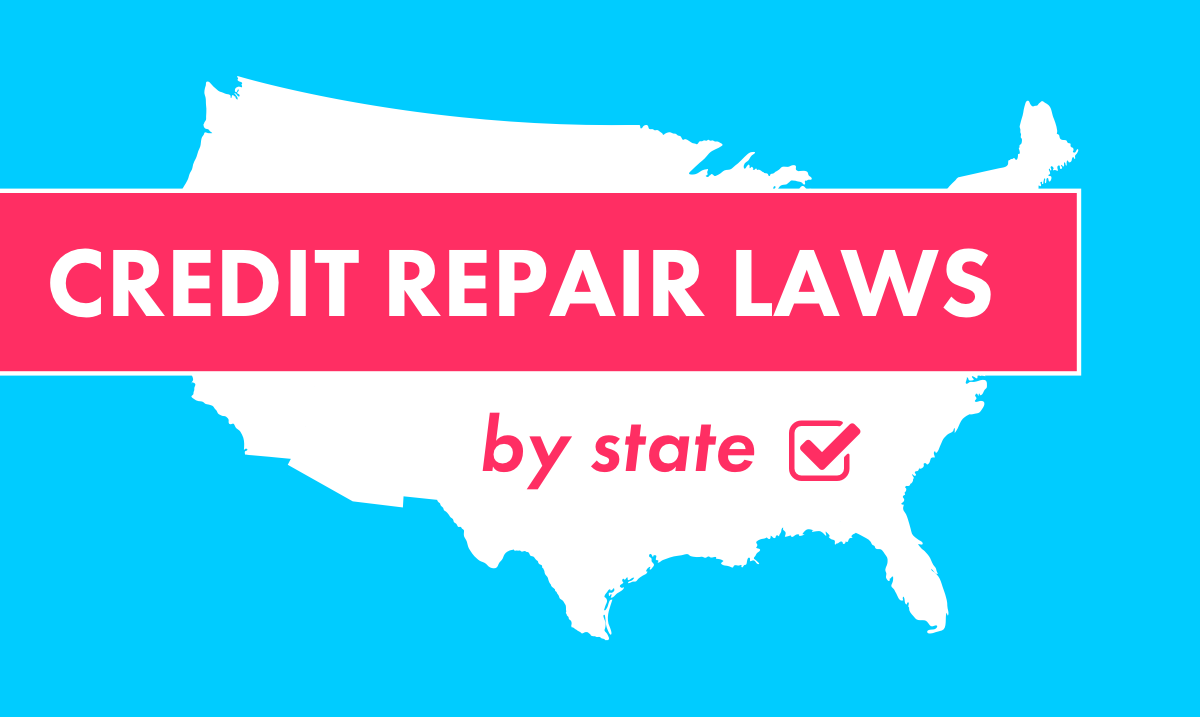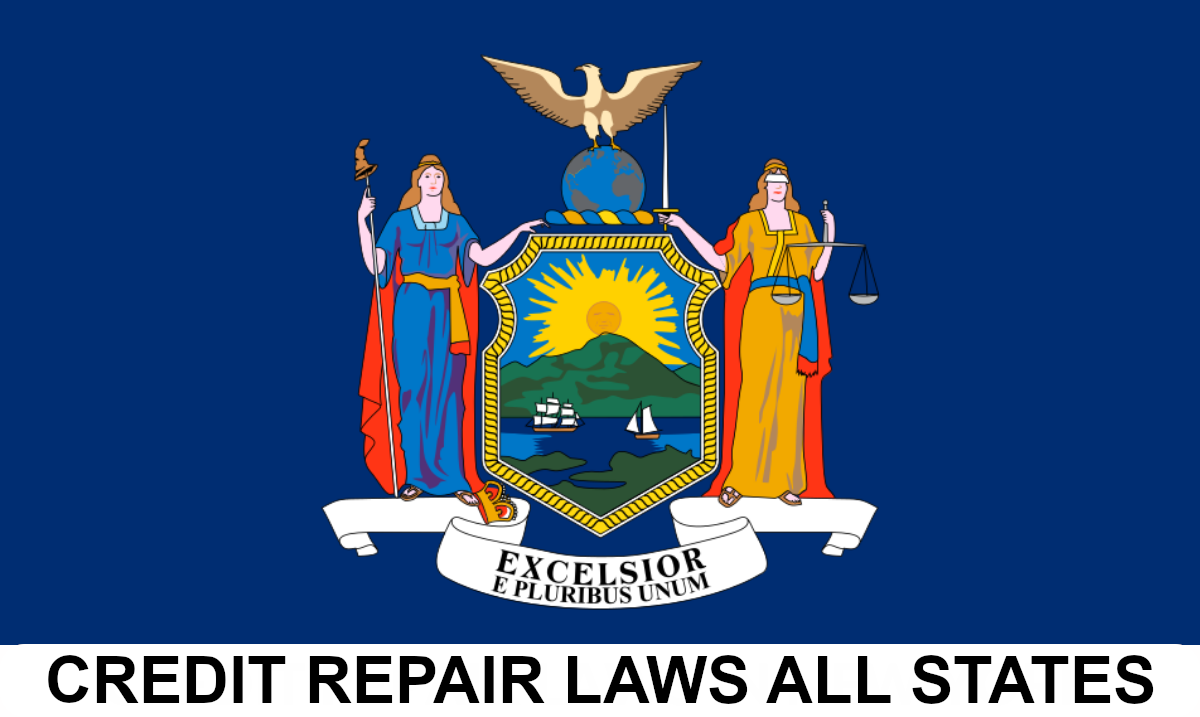Are you looking to repair your credit but unsure of the laws in your state? Look no further! In this article, we will provide you with a brief overview of credit repair laws by state. Understanding the specific regulations in your state can help you navigate the process of repairing your credit and take necessary steps towards improving your financial situation. So, let’s dive into the credit repair laws by state and empower you to make informed decisions!
Understanding Credit Repair
Definition of credit repair
Credit repair refers to the process of improving and restoring an individual’s credit profile. It involves identifying and disputing inaccuracies, errors, and outdated information on one’s credit reports. The goal of credit repair is to enhance creditworthiness, which in turn can lead to better access to loans, lower interest rates, and improved financial opportunities.
Understanding credit dispute process
The credit dispute process is a crucial aspect of credit repair. It allows individuals to challenge incorrect or misleading information on their credit reports. By filing a dispute, you can request the credit bureaus to investigate and correct any errors or discrepancies found. This process typically involves submitting supporting documentation and providing a detailed explanation of the inaccuracies identified. The credit bureaus then have a certain timeframe to investigate and respond to the dispute.
Role of credit repair companies
Credit repair companies play a significant role in assisting individuals with the credit repair process. These companies specialize in analyzing credit reports, identifying potential discrepancies, and guiding individuals through the dispute process. They offer expertise and resources to deal with credit bureaus, creditors, and collection agencies on behalf of their clients. While credit repair companies can offer valuable assistance, it is important to choose reputable and trustworthy organizations.
Federal Regulations on Credit Repair
Introduction to the Federal Trade Commission (FTC)
The Federal Trade Commission (FTC) is the primary federal agency responsible for regulating and overseeing credit repair practices in the United States. The FTC enforces various laws aimed at protecting consumers from unfair and deceptive practices by credit repair organizations. They provide resources and guidelines to educate individuals on their rights and options when it comes to credit repair.
Fair Credit Reporting Act (FCRA)
The Fair Credit Reporting Act (FCRA) is a federal law that regulates how credit reporting agencies collect, use, and disclose consumer credit information. It establishes guidelines for maintaining the accuracy and privacy of credit reports. Under the FCRA, individuals have the right to dispute inaccurate information and have it corrected or removed from their credit reports. Credit repair companies must adhere to the provisions of the FCRA when assisting consumers in their credit repair efforts.
Credit Repair Organizations Act (CROA)
The Credit Repair Organizations Act (CROA) is a federal law that specifically addresses credit repair services offered by organizations. It sets forth requirements and prohibitions for credit repair companies, aiming to prevent fraudulent practices, false advertising, and unfair billing practices. CROA mandates that credit repair organizations provide consumers with a written contract, disclose specific information about their services, and refrain from certain deceptive practices.

Credit Repair Laws in California
California Credit Repair Organizations Act
The California Credit Repair Organizations Act (CCROA) is a state law that regulates the operations of credit repair companies in California. It outlines the requirements and obligations for credit repair organizations, including registration, licensing, and fee restrictions. The CCROA also prohibits certain practices, such as making false or misleading statements, demanding advance payment, or misleading consumers about credit repair outcomes.
Rosenthal Fair Debt Collection Practices Act
The Rosenthal Fair Debt Collection Practices Act (RFDCPA) is a California state law that outlines regulations for debt collection practices, including those related to credit repair. It prohibits debt collectors from engaging in unfair, deceptive, or abusive practices when attempting to collect a debt. While the RFDCPA primarily focuses on debt collection, it can have implications for credit repair companies as they often interact with debt collectors on behalf of consumers.
Regulation of credit repair companies
Credit repair companies operating in California must comply with the regulations set forth by the CCROA. They must obtain appropriate licenses and registrations, provide consumers with written contracts, and adhere to fee restrictions. Additionally, these companies must ensure compliance with the RFDCPA when dealing with debt collectors. The California Department of Justice oversees the regulation and enforcement of credit repair laws in the state.
Credit Repair Laws in Texas
Texas Finance Code on credit repair
The Texas Finance Code includes provisions related to credit repair services in Texas. It outlines requirements for credit repair organizations operating in the state, including registration, contract provisions, and fee restrictions. The Texas Finance Code also prohibits false or misleading statements, misrepresentations, or deceptive practices by credit repair companies.
Texas Debt Collection Act
The Texas Debt Collection Act (TDCA) establishes regulations for debt collection practices in Texas, which can impact credit repair companies. It prohibits unfair or deceptive practices when collecting debts, including communication tactics, false representations, or unfair attempts to collect. Credit repair companies must be mindful of these regulations when interacting with debt collectors in the course of assisting consumers.
Licensing and regulation of credit repair companies
Credit repair companies in Texas must comply with the requirements set forth by the Texas Finance Code. This includes obtaining relevant licenses, following the specified contract provisions, and adhering to fee restrictions. The Office of Consumer Credit Commissioner oversees the licensing and regulation of credit repair organizations in the state.

Credit Repair Laws in Florida
Florida Credit Repair Organizations Act
The Florida Credit Repair Organizations Act (FCROA) regulates the operations of credit repair companies in Florida. It requires credit repair organizations to register with the state and provides guidelines for their business practices. The FCROA prohibits credit repair organizations from engaging in fraudulent activities, making false statements, and charging upfront fees.
Florida Fair Debt Collection Practices Act
The Florida Fair Debt Collection Practices Act (FFDCPA) outlines the regulations for debt collection practices in Florida, which can impact credit repair companies. It sets standards and restrictions on debt collectors, including communication practices, harassment, or misrepresentation. Credit repair companies must ensure compliance with the FFDCPA when dealing with debt collectors on behalf of consumers.
Oversight of credit repair companies
The Florida Office of the Attorney General oversees the regulation and enforcement of credit repair laws in the state. Credit repair companies must adhere to the provisions of the FCROA, obtain necessary registrations, and refrain from engaging in fraudulent or unfair practices. Consumers can report any violations to the Office of the Attorney General for investigation and potential action.
Credit Repair Laws in New York
New York General Business Law
The New York General Business Law includes provisions related to credit repair services in the state. It regulates the activities of credit repair organizations and establishes guidelines for their operations. The law prohibits deceptive practices by credit repair companies, such as false advertising, misrepresentations, or charging unfair fees.
New York Debt Collection Laws
New York has various debt collection laws that impact credit repair companies. These laws set forth standards for debt collectors, including communication practices, harassment, and misrepresentation. Credit repair companies must ensure compliance with these debt collection laws when dealing with debt collectors as part of the credit repair process.
Regulation of credit repair organizations
The New York Department of Financial Services oversees the regulation of credit repair organizations in the state. Credit repair companies must comply with the requirements of the New York General Business Law, obtain necessary registrations, and refrain from engaging in deceptive practices. The Department of Financial Services ensures compliance with these laws and takes action against violations.

Credit Repair Laws in Pennsylvania
Pennsylvania Credit Repair Organizations Act
The Pennsylvania Credit Repair Organizations Act (PCROA) regulates the activities of credit repair organizations in the state. Similar to other states’ laws, the PCROA outlines requirements for credit repair companies, including registration, contract provisions, and fee limitations. Credit repair organizations must comply with these regulations when providing services to Pennsylvania residents.
Pennsylvania Fair Credit Extension Uniformity Act
The Pennsylvania Fair Credit Extension Uniformity Act (PFCEUA) establishes guidelines for fair credit extension practices and credit repair services. It prohibits credit repair companies from engaging in fraudulent or deceptive practices, such as misrepresenting services, charging upfront fees, or misleading consumers. Compliance with the PFCEUA is crucial for credit repair companies operating in Pennsylvania.
Licensing and regulation of credit repair services
The Pennsylvania Attorney General’s Office oversees the regulation and enforcement of credit repair laws in the state. Credit repair organizations must follow the provisions set forth by the PCROA, obtain the necessary registrations, and adhere to the guidelines established by the PFCEUA. Consumers can report any violations to the Attorney General’s Office for investigation.
Credit Repair Laws in Illinois
Illinois Credit Services Organizations Act
The Illinois Credit Services Organizations Act (CSOA) outlines regulations for credit repair organizations operating in Illinois. It requires credit repair companies to register with the state and provides guidelines for their conduct. The CSOA prohibits credit repair organizations from engaging in deceptive practices, making false statements, or charging upfront fees.
Illinois Collection Agency Act
The Illinois Collection Agency Act imposes regulations on debt collection practices in Illinois. These regulations can impact credit repair companies that interact with debt collectors. The Act prohibits unfair or deceptive practices in debt collection, including harassment, false representations, and abusive tactics. Credit repair companies must ensure compliance with these regulations when dealing with debt collectors.
Regulation of credit repair agencies
The Illinois Attorney General’s Office oversees the regulation and enforcement of credit repair laws in the state. Credit repair organizations must comply with the provisions of the CSOA, obtain the required registrations, and refrain from engaging in deceptive or fraudulent practices. Consumers can report any violations to the Attorney General’s Office for investigation and potential action.

Credit Repair Laws in Georgia
Georgia Credit Repair Services Organization Act
The Georgia Credit Repair Services Organization Act (GCRSOA) regulates credit repair organizations operating in Georgia. It requires credit repair companies to register with the state and establishes guidelines for their operations. The GCRSOA prohibits credit repair organizations from engaging in deceptive practices, making false statements, or charging upfront fees.
Georgia Fair Business Practices Act
The Georgia Fair Business Practices Act sets forth regulations for business practices in Georgia, including those related to credit repair services. It prohibits unfair or deceptive practices, false advertising, or misrepresentations by credit repair organizations. Compliance with this act is crucial for credit repair companies operating in Georgia.
Oversight of credit repair organizations
The Georgia Governor’s Office of Consumer Protection oversees the regulation and enforcement of credit repair laws in the state. Credit repair organizations must comply with the requirements set forth by the GCRSOA, obtain the necessary registrations, and refrain from engaging in deceptive or unfair practices. Consumers can report violations to the Office of Consumer Protection for investigation and potential action.
Effects of Breaching Credit Repair Laws
Legal consequences for credit repair companies
Credit repair companies that breach credit repair laws can face legal consequences. These consequences may include fines, penalties, and legal actions taken against them. Regulatory agencies, such as the FTC or state attorney general’s offices, can investigate complaints and pursue enforcement actions against non-compliant credit repair companies. Violations of credit repair laws can result in reputational damage, lawsuits, and even criminal charges for severe cases of fraudulent practices.
Remedies for consumers
Consumers who have been harmed by credit repair companies that breach credit repair laws have various remedies available to them. They can file complaints with relevant regulatory agencies, such as the FTC, state attorney general’s offices, or consumer protection agencies. Depending on the nature of the violation, consumers may also be eligible for financial restitution or reimbursement for any fees paid to the non-compliant credit repair company. It is vital for consumers to be aware of their rights and options when dealing with credit repair issues.
Reporting violations to federal and state authorities
If you believe a credit repair company has violated credit repair laws, it is essential to report the violation to the appropriate federal or state authority. The FTC is the primary federal agency responsible for overseeing credit repair practices. Additionally, state attorney general’s offices and consumer protection agencies can handle complaints and investigate potential violations of credit repair laws. By reporting violations, you contribute to the enforcement of regulations and protect others from potentially harmful practices.

